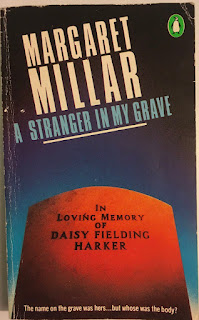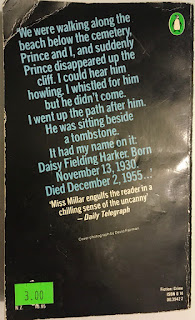Whew! For those of you wondering (i.e. nobody) where I have been for the last two months with no books reported except ones I read with my daughter, I can now tell you: deep in the 1,109 pages of the history of the world. Please let me know if you have any questions about the history of the world, as I now know everything about it. :) I picked this up at the thrift store on Gilford. It's mostly french books but every now and then you can find some decent english language used books there. I have long wanted to better understand how we got from ancient Greece and Rome to the Middle Ages. Honestly, though, I bought this book on a bit of a whim (and probably need to satisfy consumerist impulses) with no real intention or belief that I would actually read it. When I had surpassed 50 books and was feeling tired of all the genres of fiction awaiting me on the on-deck shelf and still had two months left in the year, I thought why the hell not?
It was a good choice, though I really wished I had been able to finish it before the xmas holidays as it became quite a slog at a time with lots of family interaction and domestic holiday labour when I would have preferred a nice easy detective novel or escapist sci-fi or fantasy book. Reading this book was extremely rewarding on two fronts. First, it gave me a good overview of what actually happened in the world since the beginning of civilization. Though I will (and have already) forget a lot of the details, I do now have a broad overview on the thread of the growth of human society on this planet. I went to a very academic and intellectual liberal arts college and majored in history. I learned a lot, but I always felt there was a snobbish (and typically rigid academic post-modern hatred of "objectivity") and deliberate exclusion of taking the time to just go through what actually happened before delving into the theory and arguments and all that. Reading this book filled all that in nicely. Second, reading history like this at such a high level, where major events like the Russian Revolution are summarized in a few pages genuinely provides the reader with a calming sense of perspective on current events. It certainly doesn't make you any less pessimistic, but it does turn down some of the hysteria that the news media amp up and one internalizes while reading about the resurgence of pseudo-populous fascism in democratic countries. Understanding the roots of American democracy makes one realize that the current conflicts in congress are all part of a conflict that existed from the very beginning and not necessarily the signs of the end.
There is probably a ton of stuff to freak out about in this book from a more leftist perspective. I broadly commend its approach and mostly agree with it. His biggest thesis is that the history of the world is ultimately dominated and guided by the history of Europe and the social principles that evolved out of that history. I think that broadly speaking that is mostly true. And though Roberts is mostly neutral about it (e.g. he's not saying European culture is better or superior, just that they were technologically advanced and their ideas had ways of sticking onto their conquests), it still feels like he is arguing that the very nature of capitalism and democracy are somehow fundamentally European. It's an existential argument at this point, but I would have liked to see more information on non-European trends in thinking and backgrounds that we are today seeing start to seep into the west via consumer culture.
Another big takeaway from me from the early part of the book, which just confirms my existing bias, is how much Christianity was just such a huge bummer. Putting aside the atrocities committed under its aegis, it is also just super boring. I still don't understand how it came to dominate and spread within the Roman empire (not a fault of the book as I am pretty sure there is an entire area of history just devoted to figuring the spread of Christianity out and arguing about it) but I do know it took a very rich and adventurous era with diverse civilizations and cultures and lots of cool exploring and adventure and somehow morphed it into centuries of boring doctrinal rigidity, religious semi-homogeneity (that got more and more homogenous as its power advanced, despite the splits between the Catholic churches and later the Reformation) and boring stupid wars between one stupid monolithic religion and another. And it is still plaguing us to this day. So boring!
The book ends roughly in 1990 and he starts to get things wrong at the end, understandably. He sees space exploration as a huge inflection point, completely missing the turn inward to the internet (though he does recognize the potential danger of it in one brief phrase). He also missses the resurgence of Chinese power and the challenges of globalization, being a little bit stuck in the self-satisfaction of the 90s. This is nitpicking and not fair on my part, but am sharing it because it did make me think that the beginning of the twentieth century may well indeed be seen as an inflection point. I also give him points for his strong emphasis on cares about the environment being a major historical trend at the end of the twentieth. Anyhow, epic read. It has definitely returned my appetite for fiction, but I also now have several branches of non-fiction and history into which I would like to delve. Read on!


















